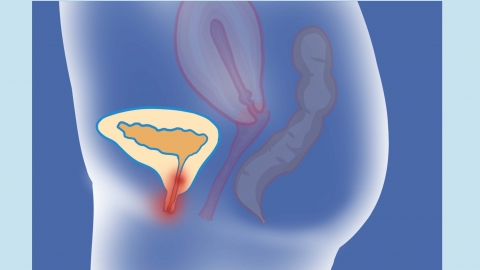What are the symptoms of urethritis?
Generally, the main symptoms of urethritis include frequent and urgent urination, redness and swelling at the urethral opening, painful urination, abnormal urethral discharge, and discomfort in the lower abdomen. If discomfort symptoms appear, it is recommended to seek timely diagnosis and treatment at a regular hospital. Detailed analysis is as follows:
1. Frequent and Urgent Urination
After the urethra is infected by pathogens, the urethral mucosa becomes irritated, leading to mucosal congestion, swelling, and increased nerve sensitivity, which causes frequent and urgent urination. Patients experience a significant increase in urination frequency, a frequent urge to urinate within short intervals, and reduced urine volume each time, sometimes accompanied by a feeling of incomplete emptying.

2. Redness and Swelling at the Urethral Opening
Prolonged inflammatory stimulation causes congestion and swelling of the mucosa at the urethral opening, leading to visible redness and swelling. The surrounding skin appears reddened and elevated, and slight pain may occur upon touch. Some patients may also experience a burning sensation at the urethral opening.
3. Painful Urination
Inflammation damages the urethral mucosa, creating small wounds. When urine passes over these injured areas during urination, it stimulates the nerve endings, causing a stabbing sensation. The pain is often described as burning or needle-like and is most noticeable during urination. In some cases, the pain may persist briefly after urination.
4. Abnormal Urethral Discharge
Inflammation increases mucosal secretion in the urethra, and the characteristics of the discharge vary depending on the type of urethritis. Gonococcal urethritis typically presents with yellow or yellow-green purulent discharge, whereas non-gonococcal urethritis usually produces a thin, white, mucoid discharge. Some patients may wake up in the morning to find their urethral opening blocked by dried discharge.
5. Lower Abdominal Discomfort
In more severe cases, the inflammation may spread to the bladder or surrounding urethral tissues, causing discomfort in the lower abdomen. Patients often report a dull ache or a feeling of pressure in the lower abdomen, which worsens after prolonged sitting or urine retention. Some individuals may also experience back pain.
In daily life, it is important to keep the urethral opening clean by washing the external genitalia daily with warm water, changing cotton underwear frequently, and avoiding tight, non-breathable pants. Sexual activity should be avoided during treatment to prevent cross-infection. Additionally, drinking plenty of warm water to increase urine output can help flush inflammatory secretions from the urethra.








